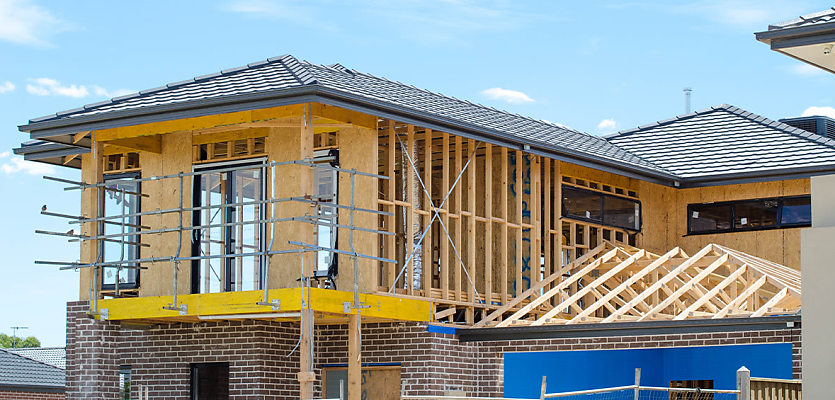Falling productivity and inefficiencies in residential construction have seen the supply of new homes fall far below the levels required to meet Australia’s national housing target.
Recent research from the Productivity Commission (PC) has revealed that only 176,000 homes were built in the 12 months to June 2024, registering significantly lower than the 240,000 new homes required to be built each year to meet the national housing target of 1.2 million new homes by 2029.
The report, titled Housing construction productivity: Can we fix it?, by the commission examined physical productivity levels throughout the home building process and determined that the housing construction sector is currently completing half as many homes per hour worked as it did in 1995.
The commission said that the “complicated and slow” approval process for residential developments was one of the factors that hindered the delivery of housing supply.
The report singled out labour shortages in the residential construction industry as another obstacle to productivity, with the average residential building firm employing less than two people, and the sector as a whole reporting difficulties around attracting and retaining workers.
As a result of these shortages, the commission noted that the residential construction sector also suffered from a lack of innovation which prevented the development of new processes and technologies that would help accelerate the housing supply.
PC commissioner Julie Abramson said many factors are to be considered when addressing the industry challenges.
“There is no single thing to blame for this poor productivity performance,” Abramson said.
“There are steps that governments could take to remove or ease regulatory bottlenecks and encourage innovation in an industry where the way we build homes has barely changed.”
To enhance productivity in the residential construction sector, the PC’s report outlined several reform directives to address the key challenges faced by the sector.
To speed up the entire housing development and construction process, the commission advocated for establishing coordination bodies, making the planning and approval process quicker and easier to navigate.
The commission additionally lobbied for an independent review of the effectiveness of the National Construction Code, focusing on how its interaction with state and local government regulations has resulted in high costs and inefficiencies in the residential construction process.
The report’s findings also highlighted the need to improve workforce flexibility in residential construction, noting this could be accomplished by improving support for apprentices and addressing barriers to migration.
PC chair Danielle Wood said that the “sheer volume of regulation has a deadening effect on productivity”.
“If governments are serious about getting more homes built, then they need to think harder about how their decisions unnecessarily restrict housing development and slow down the rate of new home building,” Wood said.
The commission also suggested that productivity could be improved by providing research and development funding for new housing construction processes and removing “unnecessary regulatory impediments” to encourage the greater adoption of modern methods such as prefabricated and modular construction.
Wood noted that while governments are focused on boosting home supply by changing planning rules, the speed and cost of new builds also matter.
“Lifting the productivity of home building will deliver more homes, regardless of what is happening with the workforce, interest rates or costs,” Wood said.
Master Builders Australia welcomed the research undertaken by the Productivity Commission and applauded the report’s “comprehensive assessment of productivity issues in the residential construction sector”.
The peak body’s CEO, Denita Wawn, said that solving the productivity issue in the construction industry would require a “coordinated and comprehensive approach by all levels of government”.
“The commission has put forward sensible recommendations that should strongly be considered by governments,” Wawn said.
“Productivity is more than an economic buzzword. Every day we drag our heels on tackling the challenges faced in the industry, the longer we drag out the housing crisis,” she concluded.









You are not authorised to post comments.
Comments will undergo moderation before they get published.